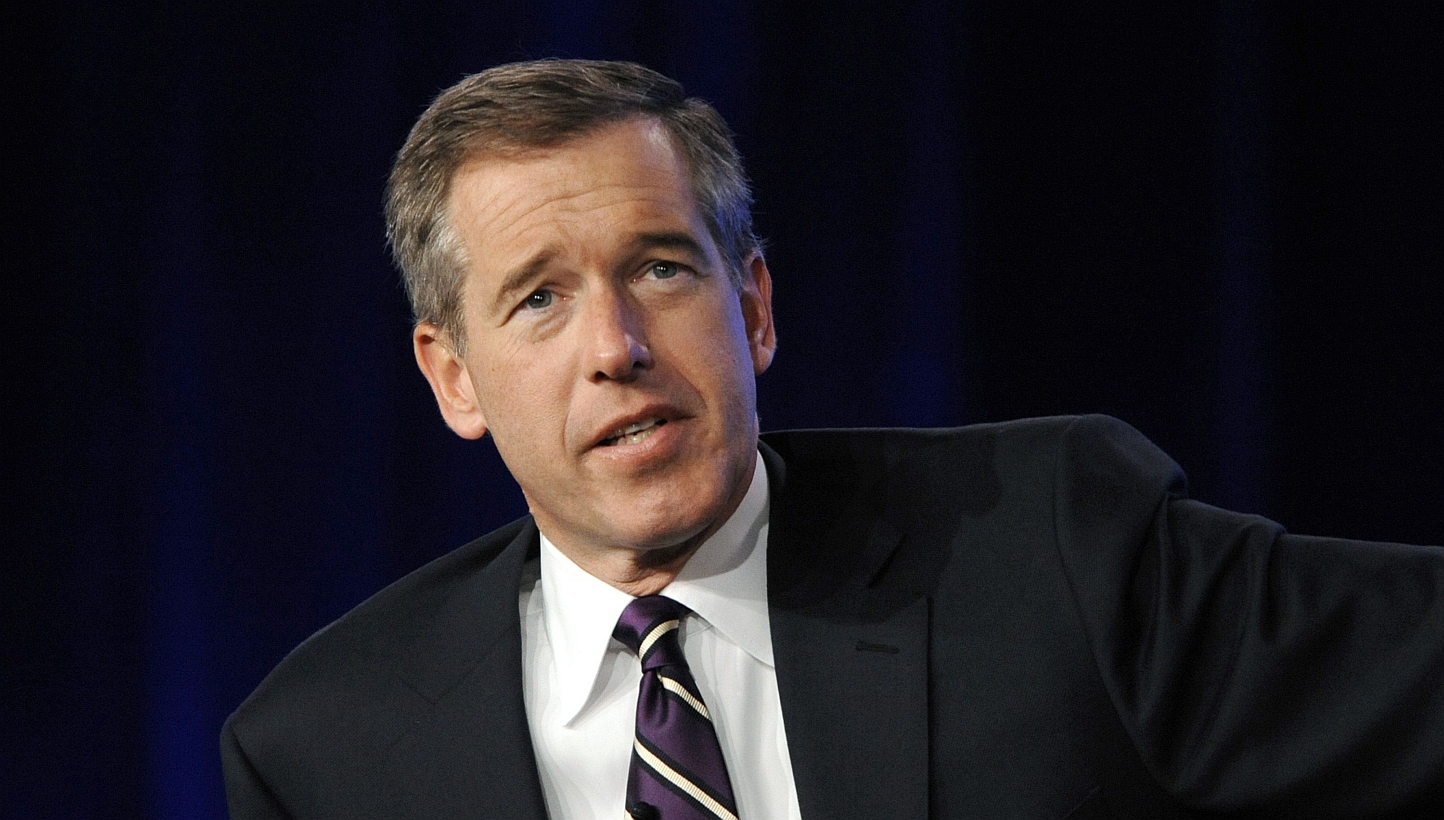NBC anchor Brian Williams suspended over a false story: 6 other journalists who made things up
Sign up now: Get ST's newsletters delivered to your inbox

United States-based news agency NBC has suspended its star news anchor Brian Williams for six months without pay over his false story of coming under fire in a US military helicopter in Iraq. Williams had in 2003 falsely claimed to have come under rocket fire. The network's investigation showed that he had repeated the incorrect account in other venues. Williams is not the first journalist to get into trouble for such issues. Here are six others.
1. Fareed Zakaria, CNN
CNN host and columnist Fareed Zakaria had accusations of plagiarism hurled at him in August 2014. Following that, some of his columns in the Washington Post, Slate and Newsweek have been affixed with editor's notes admitting the plagiarism.
It was not the first time his journalistic integrity had come under scrutiny. In August 2012, Time magazine and CNN suspended him after he acknowledged that he plagiarised sections of another writer's article about gun control. At the time, he apologised to CNN and Time over the column, which was published in Time's Aug 20 issue that year. Zakaria lifted many passages from an article by historian Jill Lepore that was published by the New Yorker magazine in April the same year.
2. Jayson Blair, New York Times
The New York Times reporter made up comments and scenes in several articles. He even fabricated articles related to a deadly sniper attacks in Washington and the anguish of families grieving for loved ones killed in Iraq. He wrote about incidents in other states as if he had been there, while stationed in New York the whole time.
He worked for the esteemed paper for nearly four years before his lies were uncovered in 2003. A New York Times article said at the time: "The widespread fabrication and plagiarism represent a profound betrayal of trust and a low point in the 152-year history of the newspaper."
3. Christopher Newton, Associated Press
In 2002, the Associated Press (AP) sacked its Washington bureau reporter Christopher Newton for journalistic fraud. AP alleged that in at least 40 of his stories, Newton wrote for the wire service between Jan 13, 2000, and Sept 8, 2002, he fabricated sources and quotes.
News website Slate reported that his fictional characters included political science professor "Patrick Delraj", who was placed at the real University of California. In some cases, the organisations were made up. He interviewed "a Robert Janson" from the "Voice for the Disabled", a "Thomas Jakes" who served as president of "People for Civil Rights", and an "Angelica Victor" who did her business at the "Education Alliance".
The AP was alerted to Newton's alleged lies by a New York Times reporter.
4. Jack Kelley, USA TODAY
USA Today reporter Jack Kelley resigned from his job in January 2004, after admitting to conspiring with a translator to mislead editors overseeing an inquiry into his work.
Reporting on the incident, USA Today said that after Kelley quit, a new investigation began, spurred by fears that he might have plagiarised.
A team of five reporters and an editor, monitored by a three-member panel of former editors from outside the newspaper, reviewed more than 720 stories Kelley wrote from 1993 to 2003. Significant parts of a story that landed him on the 2001 Pulitzer Prize finalist list were were fabricated. The eyewitness account of a suicide bombing described him seeing the bomber, but the investigation showed that the man he described could not have been the bomber. He also did not go on a high-speed hunt for now dead founder of Islamist militant group Al-Qaeda, Osama bin Laden, in 2003.
A story was considered fabricated if expense reports, phone records, official documents or witnesses clearly contradicted all or parts of what was published, and if Kelley's explanations failed to reconcile those contradictions, the article added. At the time his lies were discovered, Kelley had spent 21 years at the paper.
5. Jonah Lehrer, The New Yorker
He resigned from the paper in 2012, following a report that he fabricated quotes by singer-songwriter Bob Dylan in his new book. He was found out by Tablet Magazine's Michael C. Moynihan, who revealed that Lehrr had fabricated quotes in the book Imagine: How Creativity Works.
According to an article on Politico, Lehrer said: "The quotes in question either did not exist, were unintentional misquotations, or represented improper combinations of previously existing quotes." He was also accused of plagiarising his own works for The New Yorker's website.
6. Benny Johnson, Buzzfeed
Benny Johnson, who worked for the popular entertainment site Buzzfeed, was found to have plagiarised the work of others 40 times in some 500 articles and posts in 2014.
Washington Post reported that in an apology at the time, the site's editor Ben Smith said that Johnson had been fired.
Johnson's plagiarism was uncovered by a blog called Our Bad Media. The blog began reporting instances in which he took others' work without crediting his sources. Johnson had taken material from sources like Wikipedia, The New York Times and Buzzfeed, without crediting them.
Sources: Washington Post, Politico, Slate, The New York Times, USA Today


